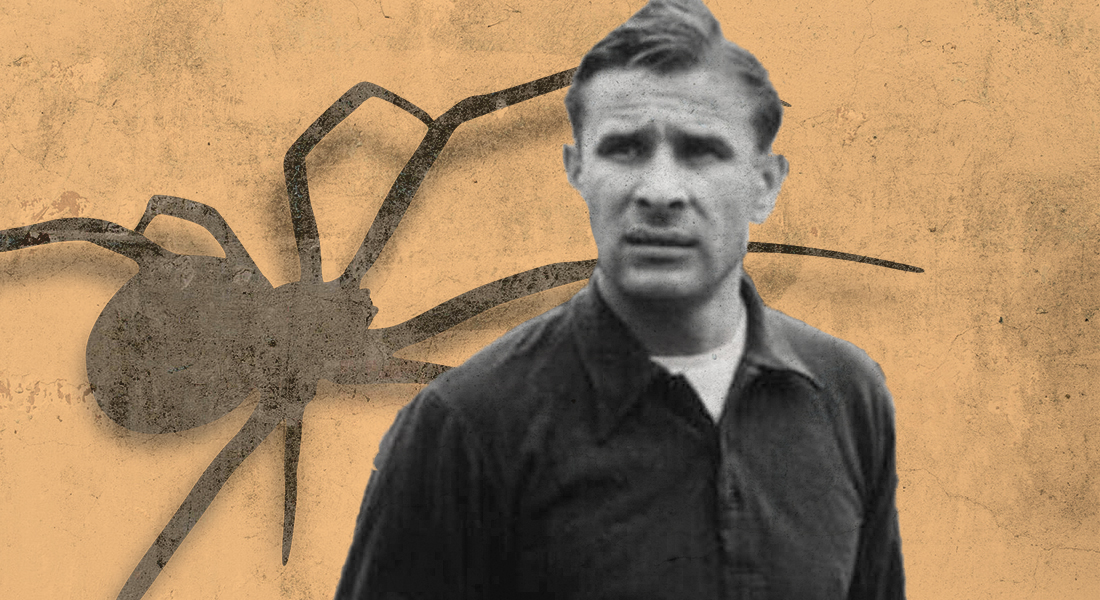Henri Delaunay, a name that may not resonate with today’s young football generation is probably the most important person in the history of the beautiful game. The UEFA European Championship, more fondly known as the “Euros”, officially known as the “UEFA European Football Championship” and formerly known as “UEFA Nations Cup”, was the brainchild of Henri Delaunay.
THE BEGINNINGS: EURO 1960
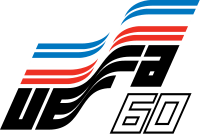
Henri Delaunay, a former referee who later became the Secretary of the French Football Federation was keen on bringing a continental tournament to Europe. While serving for the board of FIFA, he had promoted this notion numerous times. However, it was only 3 years after his death in 1955, the UEFA Nations Cup was introduced. In honour of the mastermind, the trophy was named after him- The Henri Delaunay Cup.
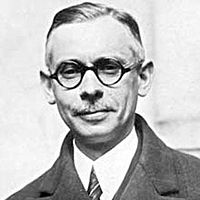
Today, it is the second most-watched football tournament in the world. The first-ever edition in 1960 saw only 17 teams appear for the tournament with just 4 making it into the finals with notable absentees of the likes of West Germany, England and Italy.
The continuing conflicts of the numerous wars that took place during the time, saw Spain pull out of the competition during the quarter-finals after being pitted against USSR. A fascinating competition that not only saw the start of rival football teams in Europe but also raised a platform for Nations to prove their superiority in Europe without engaging in the toils and devastations of war.
THE FINALS
The Soviet Union eventually went on to beat Czechoslovakia comfortably in the semi-finals held in Marseille, scoring 3 goals and conceding none. The hosts (France), however, found themselves losing to Yugoslavia by an agonizingly close scoreline. France kept the lead for the better half of the game, only to see Yugoslavia score 3 in quick succession in the 75th, 78th and 79th minute to clinch the victory by a mere one goal. The game ended 4-5, with Yugoslavia sending the hosts to the 3rd-place playoffs in Euro 1960.
The 3rd-place playoffs did not pan well for the hosts either. Drained of morale, the hosts succumbed to a defeat to Czechoslovakia. Although the hosts held their ground in the first half, the second half proved to be the decisive. Czechoslovakia scored twice in the 58th and 88th minute through Bubnik and Pavlovic respectively. France could not find the net and eventually saw the game through to the final whistle, ending the tournament without a medal.
SOVIET UNION VS YUGOSLAVIA
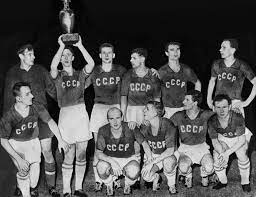
On the 10th of July, 1960, history was made, when the inaugural champion of the UEFA Nations Cup was crowned. The Soviet Union and Yugoslavia met each other in the Parc Des France to determine the winner. Arthur Edward Ellis, an English referee oversaw the match, which was attended by a crowd of a little less than 18,000 people.
The two Communists nations fought it out for the supremacy of European football. Yugoslavia opened the scoring with just 2 minutes left for the half time whistle through GaliC. The Soviets started the second half strong, equalising through an early goal from Metreveli, just 4 minutes into the half. The game dragged on into extra time and finally saw the breakthrough goal in the 113th minute by Soviet Union’s Ponedelink.
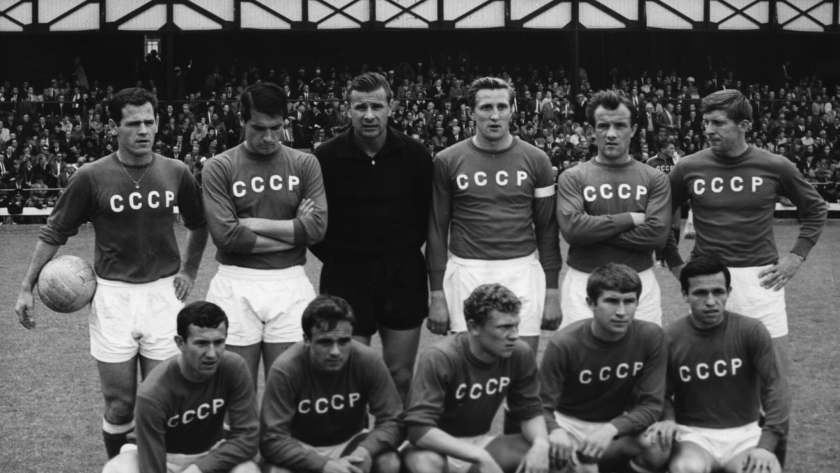
THE LINEUP
Soviet Union
GK 1 Lev Yashin
DF 2 Givi Chokheli
DF 3 Anatoli Maslenkin
DF 4 Anatoly Krutikov
MF 5 Yury Voinov
MF 6 Igor Netto (c)
FW 7 Slava Metreveli
FW 8 Valentin Ivanov
FW 9 Viktor Ponedelnik
FW 10 Valentin Bubukin
FW 11 Mikheil Meskhi
Manager: Gavriil Kachalin
Yugoslavia
GK 1 Blagoja Vidinić
DF 2 Vladimir Durković
DF 3 Fahrudin Jusufi
MF 4 Ante Žanetić
MF 5 Jovan Miladinović
MF 6 Željko Perušić
FW 7 Željko Matuš
FW 8 Dražan Jerković
FW 9 Milan Galić
MF 10 Dragoslav Šekularac
MF 11 Bora Kostić (c)
Managers: Aleksandar Tirnanić
Ljubomir Lovrić
Dragomir Nikolić
The first edition did not allow substitutes. The game was also to be decided only through a winning goal. If the game ended as a draw even after full time, a replay was to be conducted. However, since none of the matches ended as a draw, there was no need for a replay match.
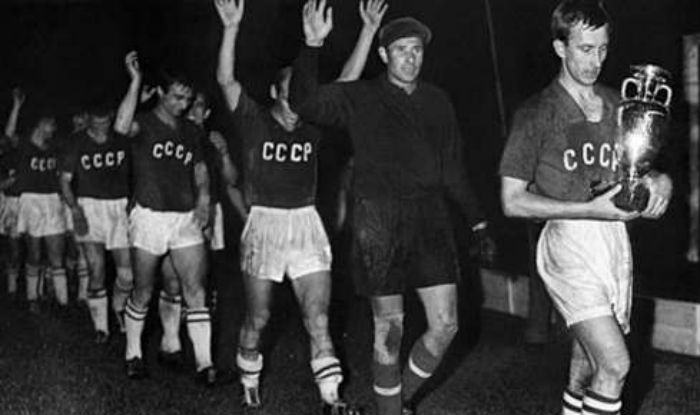
TEAM OF THE TOURNAMENT
The entire team of the tournament only featured the players from the finals in Euro 1960. It was no surprise, to see the names of the likes of Lev Yashin, legendary goalkeeper, in the midst. No player from the host nation, France, was featured in the team of the year either.
GK: Lev Yashin (Soviet Union)
DF: Vladimir Djuković (Yugoslavia)
DF: Ladislav Novák (Czechoslovakia)
MF: Igor Netto (Soviet Union)
MF: Josef Masopust (Czechoslovakia)
MF: Valentin Ivanov (Soviet Union)
FW: Slava Metreveli (Soviet Union)
FW: Milan Galić (Yugoslavia)
FW: Viktor Ponedelnik (Soviet Union)
FW: Dragoslav Šekularac (Yugoslavia)
FW: Borivoje Kostić (Yugoslavia)
THE DREAM LIVES ON!
Today, the Euros average close to 300 million viewers globally and is one of the most renowned tournaments in the world. Every nation in Europe battles it out for the glory of being crowned champions of Europe.
The tournament is held every four years and the only time it was cancelled was in 2020 due to the pandemic. France and Czechoslovakia have since gone on to win the coveted silverware. Yugoslavia on the other hand has not won the trophy even though they managed to reach the finals on one other occasion.
Most notably, the two European powerhouses which did not gain popularity in the first edition due to political reasons has been the most successful teams in the competition. Germany and Spain have won the competition 3 times each and firmly cemented their positions as one of the best in Europe.
The 1960 tournament was a landmark in the history of world football. Today its glory lives on despite the changes in rules and systems. The competition is no longer a battle for political supremacy, instead, it promotes peace and humanity. Fans from around the world celebrate the competition. Football, as they say, is the beautiful game that entails even the mighty!

